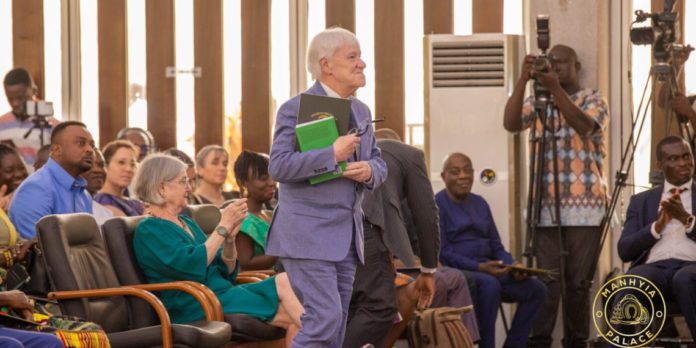It appears Asantes would be asking for more than just gold artefacts from the British, as it has come to light that the looted treasures during the Sagrenti War of 1874 in Kumasi went beyond artefacts.
Delivering a keynote address during a symposium in commemoration of the 150th anniversary of the Sagrenti War of 1874 on February 6, 2024, Prof Tom McCaskie, the Head of the Centre of West African Studies at Birmingham University, stressed that gold dust was part of the loot.
According to him, it is a part of the history of the Asantes that is being overlooked; however, it is worth the attention.
He said a great deal of wealth accumulated by Asantehene Kofi Karikari’s predecessor, Nana Kwaku Dua I were all lost to the loot with the whole city of Kumasi burnt to ashes.
“Kwaku Dua was somebody who really, really enforced the laws of Asante. In the process, he gathered together a great deal of money in gold dust principally but also in species and other things.”
Elaborating on the said gold, the historian said the “great deal of money” was kept in three different places in Kumasi including Kumasi, Aburaso and Breman and was bequeathed to Kofi Karikari at the death of Nana Dua in 1867.
“The amount of gold contained in Adakakese alone at Kwaku Dua’s death was in excess of 400,000 ounces. This in 1867 was worth 1.2 million pounds sterling. The current value of the Adakakase is somewhere over 2 billion pounds.”
He also drew attention to the fact that no history of the war makes any form of allusion to the money.
“The attempt to get back the treasures looted from Kumasi by Garnet Wolseley in 1874, takes no account- because it cannot- of the gold or gold dust that the British must have carried away with them. We don’t know about this because it was loot, a private loot and so it is separate from the cultural artefacts that Otumfuo is trying to retrieve for Asanteman.”
This means more than artefacts could be demanded from the British but is the Kingdom ready to make such a demand?
Dr McCaskie in his address encouraged the Kingdom to fight back for all that it duly deserves.
Restoration Of Artefacts
Negotiations to retrieve stolen artefacts during the war began in 1921 after Prempeh I returned from exile and finally proved successful in the era of Otumfuo Osei Tutu II, the current Asantehene, as the British Museum and the Victoria & Albert Museum have agreed to return the items, albeit on loan.
They are expected in the country in May this year.
Meanwhile, the Fowler Museum in Los Angeles which received a donation of seven pieces of the Asante artefacts from Wellcome Trust in 1964 have returned them on permanent grounds.
ALSO READ:

